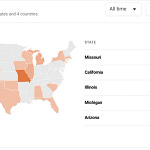
Anti-institutional, Anti-authority, populist ... and lost
This episode is based on the latest dispatch from The Embassy - here is an excerpt:
…
Institutions
Surely you have noticed the cultural trends toward anti-institutionalism. It may be true that we were too trusting in institutions - our company, our government, our universities, even our churches. And some skepticism, as we have seen, may have been warranted and may be warranted still. But the pendulum has swung pretty far against anything, anyone, any idea from any institution - the more establishment the institution, the farther the pendulum seems to have swung.
Credentials
The doctor, (your doctor), the pastor, (your pastor), the scientist, (you don’t have a scientist, do you?) … in many cases is distrusted or ignored because they have credentials. The rando on YouTube is trusted because he or she is not (or is barely) accredited or credentialed. How many politicians run as outsiders? How many of them compete with each other for outsiderness? “Vote for me, I don’t even know where my office would be or where to park or what I might do - I know nothing about how these politicians work, I just know I am against them - and that you should vote for me because I am nothing like them.”
Authority
Anyone who has a place of traditional authority is increasingly distrusted - because of their place of traditional authority. Again, we might have our reasons, but … we may be reflexing a bit too far in the other direction. Even those who have spent a good portion of their lives becoming an expert in a field are - and this is the point, for that very reason - not listened to. Are some of them a bit wacky? Sure. Are some of them motivated by and influenced by things outside their area of expertise? Certainly. But it seems, in response to this, we want inexpert opinion. Or, really, we want to be completely unconstrained - we want to choose our opinions in areas governed by, like, facts, in the same way we choose our sweaters. We are the only authority we trust.
Populism
We believe in pure democracy. The little guy should decide everything. (Never mind that the little guy is more than one guy, more like two little guys who disagree about everything.)
As an aside, ‘anti-democratic’ has come to be equated with fascism, as if everything should be up for popular vote - not recognizing that we (on purpose) have anti-democratic elements in the Constitution. The Bill of Rights, for example, is there because our nation's founders not only feared the autocracy of the king, they feared the autocracy of the mob. They knew that some group might decide that the police should be able to kick down whatever doors they want (because I don’t think mine is the kind of door they will kick down), or that some people shouldn’t be able to say that (because I can say what I want), or that some people shouldn’t be able to worship that way … they knew we would have times and places when all of those would win a democratic vote, and, in the name of freedom, we shouldn’t allow it. That was a long aside, but we can see the founders were not populists.
… another excerpt …
I have spent a good part of the last few years reading, thinking, talking, coaching, consulting, and writing about leadership. Not just what makes a good leader, but what is leadership? What does a leader do?
One simple definition of leadership is that which takes a group of people, with their willing participation that may not have been so willing at the start, to a place they wouldn't have chosen. One who catalyzes that group of people to identify with each other, to work for one another, become different together - all for their own good. Someone, in other words, who finds a way to give people not what they want, or what they say they want - but what is for their good and the good of others. And when we arrive together at the destination, we see that it is better - even if we don't readily or publicly admit it.
Tod Bolsinger, in one of the best books on leadership I know of (Canoeing the Mountains), defines leadership this way -
Leadership is energizing a community of people toward their own transformation in order to accomplish a shared mission in the face of a changing world.
Tod Bolsinger - Canoeing the Mountains
There is a lot to that definition of leadership. I don't think it is how we want to experience leadership. We want to experience affirmation, we want to experience the bond that comes from a common enemy, we want to experience a common victimization from that common enemy, we want to experience the faux righteousness that comes from being the right people fighting the wrong people. We want a spokesman, an avatar, an influencer - someone we identify with because they promise all that we want. In other words, we don't want a leader.
Who is in charge around here?
View: One of the things we do around here at The Embassy is examine, think about, ruminate, and write about our culture. What is going on in our world, cultural trend wise, and what might it mean? If you are a subscriber, hopefully this is not news to you, if you are new - welcome! I want to think about (with you) something…













Share this post